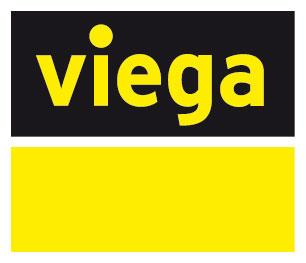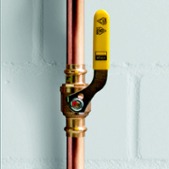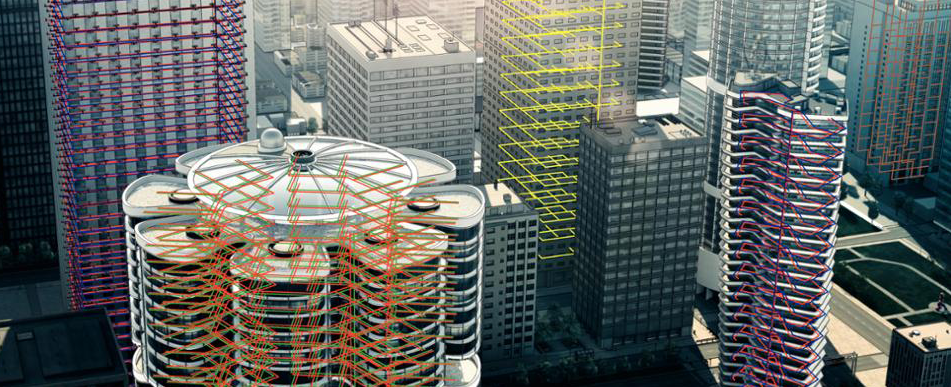Fire needs three things to occur: oxygen, fuel, and ignition. Remove any element of the “fire triangle” and combustion is impossible.
Oxygen is a given in just about any circumstance in which a plumbing contractor is likely to be working. Fuel is also likely to be present in the form of wood, other building materials, flammable liquids and gases, or in some other form.
That leaves ignition as the element that can most easily be controlled. And that’s one reason why pressing is better than soldering, particularly in confined spaces.
Soldering in tight quarters, like inside a wall or a plenum space, requires manipulating an air/acetylene torch with a 1700 °F flame while keeping it away from anything that might burn. It’s easy for accidents to occur.
According to a National Fire Protection Association report, soldering equipment caused 650 fires in the U.S. from 2013-17, resulting in two deaths, 27 injuries and $30 million in property damage. The figures for welding torches in the same period were 640 fires, three deaths, 27 injuries and $35 million in damages.
Using a press tool and some swiveling rings eliminates the need for flame in a confined space. And as a bonus, it’s also faster.
If fire does break out in a confined space, like an attic or crawlspace, it can be difficult for the contractor to exit safely in time. Working with a flame sometimes requires another worker to stand fire watch. Plus, when working in confined spaces, a safety watch is usually required. While necessary, those are added expenses, plus it might mean pulling a worker off another part of the job. Reducing the time spent in these conditions is an inherent benefit of press. A safety watchperson might still be required, but quicker completion means less impact on cost. Reducing time in confined spaces also reduces worker risk.
Of course, there are some places where the risk of a fire or explosion are so great that it’s extremely dangerous or impossible to use a flame, like in hospitals, oil refineries, chemical plants, etc. In those cases, pressing is the only safe solution.
When a safer, faster alternative like pressing is available, working with flame poses an unnecessary risk.
Viega USA
Select country
- AAlbania
- Algeria
- Australia
- Austria
- Azerbaijan
- BBahrain
- Belarus
- Belgium
- Belize
- Bosnia
- Brazil
- Bulgaria
- CCanada
- Caribbean Islands
- Chile
- China
- Croatia
- Cyprus
- Czech Republic
- DDenmark
- EEcuador
- Egypt
- Estonia
- FFinland
- France
- GGeorgia
- Germany
- Greece
- HHongkong
- Hungary
- IIceland
- India
- Indonesia
- Iraq
- Ireland
- Italy
- JJapan
- Jordan
- KKazakhstan
- Kosovo
- Kuwait
- LLatvia
- Lebanon
- Lithuania
- Luxembourg
- MMacedonia
- Malaysia
- Malta
- Mexico
- Moldavia
- Montenegro
- Morocco
- NNamibia
- Netherlands
Albania
Viega Head Office Croatia
Trg Ante Starčevića 910410 Velika Gorica
Croatia
- +385 (1) 622 48 79
- +385 (1) 622 48 79
- info@viega.hr
Algeria
DEED S.A.L. NORTH AFRICA OFFICE
Kaslk, Etoil Building, 3rd FloorP.O. Box 214 Zouk Mikhael
Lebanon
Mr. Nicolas Khalifeh
- +961 9 22 24 94
- +961 9 22 24 94
- info@deedsal.com
Australia
Viega Pty Ltd.
Suite 102, 8 Century CircuitPO Box 8270 Baulkham Hills, NSW 2153
Australia
Contact person: Phil Jackson
- 61 488 7784 55
- phil.jackson@viega.com.au
Website
Austria
Viega GmbH
Raiffeisenplatz 14863 Seewalchen, Attersee
Austria
- +43 0 76 62 29 880-0
- +43 0 76 62 29 880-30
- seminarcenter@viega.at
Website
Azerbaijan
OOO Viega
Volgogradskiy prospect, d. 43, korp.3, office 901109316 Moskau
Russia
- +7 495 980 1080
- info-mos@viega.ru
Website
Bahrain
Viega EMEAPA GmbH & Co. KG
Viega Platz 157439 Attendorn
Rosario Conoscenti
- +49 2722 61 1432
- rosario.conoscenti@viega.de
Belarus
- + 375 0 29 6 33 38 64
- andrei.zaitsev@viega.de
Belgium
Viega Belgium bvba.
Planet I Business Park, Tollaan 101cB-1932 Sint-Stevens-Woluwe
Belgium
- +32 0 25 51 55 10
- +32 0 25 03 14 33
- info@viega.be
Website
Belize
2430 SW 128 CourtFI 33175 Miami
Belize
Ansprechpartner: Ray Carabeo
- 305 233-8764
- 407 453-2044
- 786 242-5915
- Ray.Carabeo@viega.us
- +387 33 71 94 16
- +387 61 19 17 85
- +387 33 71 94 16
- Kerim.Karavdic@viega.de
Brazil
Viega do Brasil Indústria e Comércio Ltda
Av. Avelino Capellato, 460CEP 13280-000 Santa Claudina
Brazil
- 55 19 3876 2789
- contato@viega.com.br
Bulgaria
Калин Колевкв. Малинова Долина
1756 София
България
Regional Manager: Cristian Cristea
- +359 885 55 03 45
- cristian.cristea@viega.ro
Canada
Viega LLC
12303 Airport Way, Suite 395Broomfield, CO 80021
- 800 976-9819
- 800-916-9817
- ViegaInsideSales@viega.us
Caribbean Islands
Chile
China
Viega EMEAPA GmbH & Co. KG
Viega Platz 157439 Attendorn
Germany
Area Manager: Stefan Rinscheid
- 49 2722 61 – 941945
- stefan.rinscheid@viega.de
Croatia
VIEGA – Podružnica Zagreb za trgovinu
Trg Ante Starevica 9HR- 10410 Velika Gorica
Croatia
- +385 1 622 48 79
- +385 1 622 48 79
- info@viega.hr
Website
Cyprus
TAPS & MORE MARKETING CONSULTANTS
Dubai Silicon OasisP.O. Box 75833, Dubai United Arab Emirates
- +971 4 32 07 300
- +971 4 32 07 400
- tapman@emirates.net.ae
Nicos Theodorou & Sons Ltd.
12 Dimitsanis Str.1070 Nicosia
Cyprus
- 00357-99625946
- doros.theodorou@nicos-theodorou.com.cy
Czech Republic
Viega s.r.o
Hrušovská 2969/13702 00 Ostrava
Czech Republic
- +420 595 054 933
- +420 595 054 162
- info@viega.cz
Denmark
Viega A/S
Blokken 36DK-3460 Birkerod
Denmark
- +45 0 45 94 29 50
- +45 0 45 94 29 69
- info@viega.dk
Website
Ecuador
Egypt
DEED S.A.L. NORTH AFRICA OFFICE
Kaslk, Etoil Building, 3rd FloorP.O. Box 214 Zouk Mikhael
Lebanon
- +961 9 22 24 92
- +961 9 22 24 93
- info@deedsal.com
Estonia
Viega CE GmbH & Co. KG
Zolitudes lela 79LV -1029 Riga
Estonia
Regional Manager: Guntis Argalis
- +371 0 67 40 53 08
- +371 0 29 49 06 06
- +371 0 67 40 53 14
- gargalis@viega.de
Finland
Viega A/S Suomi
PL 1708101 Lohja, Suomi
Finland
- +358 0 19 231 950
- +358 0 19 231 958
- info@viega.fi
Website
France
Viega S.à.r.l.
Hôtel d'entreprises, ZAC des Terrasses de laSarre, 2, Terrasse de Bretagne
57400 Sarrebourg
France
- +33 0 3 87 24 97 40
- +33 0 3 87 24 48 98
- info@viega.fr
Website
Georgia
OOO Viega
Волгоградский проспект, д. 43, корп. 3, офис 901109316 Moskau
Russia
Sales Director: Vladimir Kostyuk
- +7 495 980 1080
- info-mos@viega.ru
Germany
Viega Deutschland GmbH & Co. KG
Postfach 430/440 oder Viega Platz 157439 Attendorn
Germany
- +49 2722 61-0
- +49 2722 61-1415
- info@viega.de
Website
Greece
Viega CE GmbH & Co. KG
Viega Platz 1D- 57439 Attendorn
Area Sales Manager: Helmut Strack
- +49 2722 61 1290
- +49 2722 61 1524
- hstrack@viega.de
Hongkong
Distributor for Piping systems
Delta Pyramax Co. Ltd.4/F Maxwell Industrial Building
350 Kwun Tong Road
Hongkong
Mr. Jason Choy
- + 852 2511 2118
- Jasonchoy@dpx.hk
Viega (China) Plumbing Systems Co., Ltd
YangjianTown, XiHu RoadChina PC 214107 Wuxi City
Jiangsu
- +86 510 88739006
- +86 510 88734989
- info@viega.cn
Hungary
Viega Kereskedelmi Kft.
Lövöház u. 30., Magyarország1024 Budapest
Hungary
- +36 0 1 3 45 04 95
- +36 0 1 3 45 04 96
- info@viega.hu
Website
Iceland
130 Reykjavik IslandReykjavik
Iceland
Commercial Agency: Sanform ehf, Hermann Gunnarsson
- +354 587 54 00
- hermann@sanform.is
India
Viega India Pvt. Ltd.
Regus Business Centre Ahmedabad Pvt Ltd,B, 101-104
380014 Ahmedabad
India
Opp. Memnagar Fire Station, Vijay Cross Road
- +91 22 28 71 51 60 99
- +91 97 11 18 29 13
- +91 22 28 71 51 70
- info@viega.in
Indonesia
Viega South East Asia Pte Ltd
42, Emerald Hill Road229318 Singapore
Indonesia
Regional Manager South East Asia: Darren Ng
- +65 9728 1793
- darren.ng@viega.de
Iraq
Viega EMEAPA GmbH & Co. KG
Kaslik, Etoile Building, 3rd FloorP.O. Box 214 Zouk Mikhael
Lebanon
Mr. Elie Maksoud
- +961 9 22 24 94
- +961 9 22 24 95
- info@deedsal.com
Ireland
Viega EMEAPA GmbH & Co. KG
Viega Platz 157439 Attendorn
Area Sales Manager: Rosario Conoscenti
- +49 27 22 61 1432
- rosario.conoscenti@viega.de
Italy
Viega Italia S.r.l.
Via Giulio Pastore, 1640053 Valsamoggia
Italy
- +39 051 67 120 10
- +39 051 67 120 27
- info@viega.it
Japan
Jiangsu Jinyang Viega Plumbing Systems Co.,Ltd
YangjianTown, XiHu RoadChina PC 214107 Wuxi City, Jiangsu
Japan
Viega products group & KA sales Director: Benson Ren
- +86 510 88739006
- +86 510 88734989
- ren.feng@jyfittings.com
Jordan
DEED S.A.L. BEIRUT OFFICE
Kaslik, Etoile Building, 3rd FloorP.O. Box 214 Zouk Mikhael
Lebanon
Mr. Elie Maksoud
- +961 9 22 24 94
- +961 9 22 24 95
- info@deedsal.com
Kazakhstan
OOO Viega
Volgogradskiy prospect, d. 43, korp.3, office 901109316 Moskau
Russia
Sales Director: Vladimir Kostyuk
- +7 495 980 1080
- info-mos@viega.ru
Website
Kosovo
Viega Head Office Croatia
Trg Ante Starčevića 910410 Velika Gorica
Croatia
- +385 (1) 622 48 79
- info@viega.hr
Kuwait
Viega EMEAPA GmbH & Co. KG
Viega Platz 157439 Attendorn
Mr. Rosario Conoscenti
- +971 4 32 07 300
- +971 4 32 07 400
- tapman@emirates.net.ae
Latvia
Viega CE GmbH & Co. KG
Zolitudes lela 79LV -1029 Riga
Latvia
Regional Manager: Guntis Argalis
- +371 29490606
- guntis.argalis@viega.lv
Lebanon
DEED S.A.L. BEIRUT OFFICE
Kaslik, Etoile Building, 3rd FloorP.O. Box 214 Zouk Mikhael
Lebanon
- +961 9 22 24 94
- +961 9 22 24 95
- elie@deedsal.com
Lithuania
Viega CE GmbH & Co. KG
Antakalnio 99-10010218 Vilnius
Lithuania
Sales Consultant: Ramunas Kaseta
- +370 65 23 85 55
- Ramunas.kaseta@viega.de
Viega CE GmbH & Co. KG
Viega Platz 157439 Attendorn
Germany
Regional Manager: Guntis Argalis
- gargalis@viega.lv
- +371 (294) 90606
Luxembourg
Viega CE GmbH & Co. KG
Viega Platz 157439 Attendorn
Germany
Mrs. Heike Schade
- +49 2722 61 1589
- +49 2722 61 94 1589
- Heike.Schade@viega.de
Macedonia
Viega Head Office Croatia
Trg Ante Starčevića 910410 Velika Gorica
Croatia
- +385 (1) 622 48 79
- info@viega.hr
Malaysia
Viega South East Asia Pte Ltd
42, Emerald Hill Road229318 Singapore
Malaysia
Regional Manager South East Asia: Darren Ng
- +65 9728 1793
- darren.ng@viega.de
Malta
Joseph Lanzon
Madliena HillNXR5330 Madliena
Malta
Contact name: Katrina Lanzon
- +356 (0)21 37 05 61
- +356 (0)21 37 29 36
- lanzon@waldonet.net.mt
Mexico
Viega Mexico, S. de R.L. de C.V.
Av. Santa Fe 170, OF, 1-4-0801210 Del Álvaro Obrégon, Col Lomas de Santa Fe
Mexico
- +52 55 52 921265
- contacto@viega.mx
Website
Moldavia
Viega EMEAPA GmbH & Co. KG
Viega Platz 157439 Attendorn
Germania
Regional Manager: Cristian Cristea
- +40 (744) 76 20 72
- cristian.cristea@viega.ro
Montenegro
Sales Consultant: Ivko Sandić
- +381 (11) 237 95 18
- +381 (11) 233 78 80
- ivko.sandic@viega.de
Morocco
DEED S.A.L. NORTH AFRICA OFFICE
Kaslk, Etoil Building, 3rd FloorP.O. Box 214 Zouk Mikhael
Lebanon
Mr. Nicolas Khalifeh
- +961 9 22 24 92
- +961 9 22 24 93
- info@deedsal.com
Namibia
Viega EMEAPA Gmbh & Co. KG
Viega Platz 157439 Attendorn
Mr. Rosario Conoscenti
- +49 2722 61 1432
- rosario.conoscenti@viega.de
Netherlands
Viega Nederland B.V.
Amsterdamsestraatweg 45-G1410 AX Naarden
Netherlands
- +31 (0)3 55 38 04 42
- +31 (0)3 55 38 07 53
- info@viega.nl
Website
New Zealand
Viega Pty Limited
Suite 102, 8 Century CircuitPO Box 8270 Baulkham Hills, NSW 2153
New Zealand
Contact person: Phil Jackson
- +61 488 77 84 55
- phil.jackson@viega.com.au
Website
Norwegen
Viega A/S filial Norge
Postboks 341917 Ytre Enebakk
Norway
- +47 (0) 63 0790 - 806
- info@viega.no
Website
Oman
Viega EMEAPA Gmbh & Co. KG
Viega Platz 157439 Attendorn
Mr. Rosario Conoscenti
- +49 2722 64 1432
- rosario.conoscenti@viega.de
Pakistan
TAPS & MORE MARKETING CONSULTANTS
Dubai Silicon OasisP.O. Box 75833 Dubai
United Arab Emirates
- +971 4 32 07 300
- +971 4 32 07 400
- tapman@emirates.net.ae
Philippines
Viega South East Asia Pte Ltd
42, Emerald Hill Road229318 Singapore
Philippines
Regional Manager South East Asia: Darren Ng
- +65 9728 1793
- darren.ng@viega.de
Poland
Viega Sp.z o.o.
Al. Zwyciestwa 25081-540 Gdynia
Poland
- +48 58 66 24 - 999
- +48 58 66 24 - 990
- info@viega.pl
Website
Portugal
Viega CE GmbH & Co. KG
Viega Platz 157439 Attendorn
Alemanha
Regional Sales Manager: Alberto Fonseca
- + 351 966 940 289
- + 351 244 836 853
- alberto.fonseca@viega.pt
Qatar
Viega EMEAPA GmbH & Co. KG
Viega Platz 157439 Attendorn
Mr. Rosario Conoscenti
- +49 2722 61 1432
- rosario.conoscenti@viega.de
Romania
Viega EMEAPA GmbH & Co. KG
Viega Platz 157439 Attendorn
Germany
Regional Manager: Cristian Cristea
- +40 744 76 20 72
- cristian.cristea@viega.ro
Russia
OOO Viega
Volgogradskiy prospect, d. 43, korp.3, office 901109316 Moskau
Russia
- +7 495 980 1080
- info-mos@viega.ru
Website
Saudi Arabia
Viega EMEAPA GmbH & Co. KG
Viega Platz 157439 Attendorn
Mr. Rosario Conoscenti
- +49 2722 61 1432
- rosario.conoscenti@viega.de
Serbia
Sales Consultant: Ivko Sandić
- +381 (11) 237 95 18
- +381 (11) 233 78 80
- Ivko.sandic@viega.de
Singapur
Viega South East Asia Pte Ltd
42 Emerald Hill Road229318 Singapore
Singapur
Regional Manager South East Asia: Darren Ng
- +65 9728 1793
- darren.ng@viega.de
Slovakia
Viega s.r.o.
Hrušovská 2969/13702 00 Ostrava
Czech Republic
Regional Manager: Peter Liptak
- +421 (0)32 65 26 353
- +421 (0)9 03 28 08 88
- +421 (0)32 65 26 353
- peter.liptak@viega.sk
Slovenia
Viega CE GmbH & Co. KG
Viega Platz 157439 Attendorn
Nemčija
Vaš lokalni kontakt: Tomislav Niksic
- +385 1 622 48 79
- tniksic@viega.hr
South Africa
Viega EMEAPA GmbH & Co. KG
Viega Platz 157439 Attendorn
Mr. Rosario Conoscenti
- +49 2722 61 1432
- rosario.conoscenti@viega.de
Spain
Conducciones de Agua Viega, S.L.
c/ Marqués de Riscal, 11 - 5°28010 Madrid
Spain
- +91 (825) 94 54
- +91 (310) 28 82
- info@viega.es
Sweden
Viega A/S
Box 1400140020 Göteborg
Sweden
- +46 31 70 37 16 9
- +46 31 70 37 16 6
- info@viega.se
Taiwan
Viega Platz 157439 Attendorn
Germany
Area Manager: Stefan Rinscheid
- +49 2722 61 – 941945
- stefan.rinscheid@viega.de
Thailand
Viega South East Asia Pte Ltd
42, Emerald Hill Road229318 Singapore
Thailand
Regional Manager South East Asia: Darren Ng
- +65 9728 1793
- darren.ng@viega.de
Tunisia
DEED S.A.L. NORTH AFRICA OFFICE
Kaslk, Etoil Building, 3rd FloorP.O. Box 214 Zouk Mikhael
Lebanon
Mr. Nicolas Khalifeh
- +961 9 22 24 92
- +961 9 22 24 93
- info@deedsal.com
Turkey
Viega Tesisat Teknolojisi Limited Şirketi
Yeşilköy Mahallesi Atatürk Caddesi No:1234149 Bakirköy/Istanbul
Turkey
Mr. Özgür Ogur
- +90 541 3793360
- info@viega.com.tr
- Ozgur.Ogur@viega.com.tr
Ukraine
Viega EMEAPA GmbH & Co. KG
Viega Platz 157439 Attendorn
Німеччина
Regional Manager Ukraine: Aleksii Martynenko
- +38 (0) 67 325 79 79
- Aleksii.Martynenko@viega.ua
United Arab Emirates
TAPS & MORE MARKETING CONSULTANTS
Dubai Silicon OasisP.O. Box 75833 Dubai
United Arab Emirates
- +971 4 32 07 300
- +971 4 32 07 400
- tapman@emirates.net.ae
United Kingdom
Viega Limited
Palmerston House814 Brighton Road Purley
Vereinigtes Königreich
- +44 (0) 330 111 4568
- sales@viega.co.uk
United States of America
Website
Vietnam
Viega South East Asia Pte Ltd
42, Emerald Hill Road229318 Singapore
Vietnam
Regional Manager South East Asia: Darren Ng
- +65 9728 1793
- darren.ng@viega.de
Yemen
TAPS & MORE MARKETING CONSULTANTS
Dubai Silicon OasisP.O. Box 75833 Dubai
United Arab Emirates
Mr. Georges Kawaar
- +971 4 32 07 300
- +971 4 32 07 400
- tapman@emirates.net.ae








